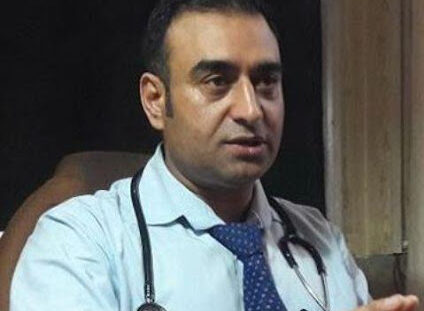
Doctors Association Kashmir (DAK) on Friday has sought wastewater testing in Kashmir to predict Covid-19 outbreaks.
“Wastewater testing can detect the virus weeks to a month before clinical cases surface. It provides early warning of Covid-19 spread in the community that would allow public health officials to act quickly to prevent the spread of the disease,” said DAK President and influenza expert Dr Nisar ul Hassan.
“Adding wastewater testing to our Covid-19 intervention is like adding a smoke alarm to your house. It provides warning before the problems get out of control,” he said.
Dr Hassan said according to a study conducted in Italy in December 2019, wastewater testing had indicated the presence of Covid-19 way before the first confirmed case in the country.
“Scientists in India have found that wastewater testing can predict a wave of Covid infection a month before symptoms start to show,” he said,
Dr Hassan said people who are infected with Covid-19 shed the virus through their feces before they show symptoms, seek healthcare or get tested.
“Wastewater testing uses domestic wastewater present in sewerage system and open drains, which contain human excreta, to provide information about the circulation of Covid in a population,” he said.
The DAK President said because of widespread immunity in the population, many people infected with Covid are either asymptomatic or have mild disease and they are not getting tested. That means clinical data would be a gross underestimate of the actual viral burden in the population, while wastewater testing remains a consistent indicator of community level infection.
“Also, testing individual members of the population at scale is expensive and logistically difficult. A cheaper and logistically simpler strategy is to analyze sewage. A single test can give us an idea about the prevalence of a disease in a wider population,” he added.
“Not only will wastewater testing identify the existing variants, but will also detect emergence of novel variants,” said Dr Nisar.
“Genomic sequencing of a large number of individual samples is expensive. Using sewage could cost a fraction of the amount, yield the same information and give a representative picture of the entire community,” he said.
General Secretary DAK Dr Arshad Ali said the tracking of diseases through wastewater testing is not new. It has been used for decades to track polio and other viruses.
“As for Covid-19, 58 countries have included wastewater testing process in their national testing strategies and tracing programmes,” he said. KNT
